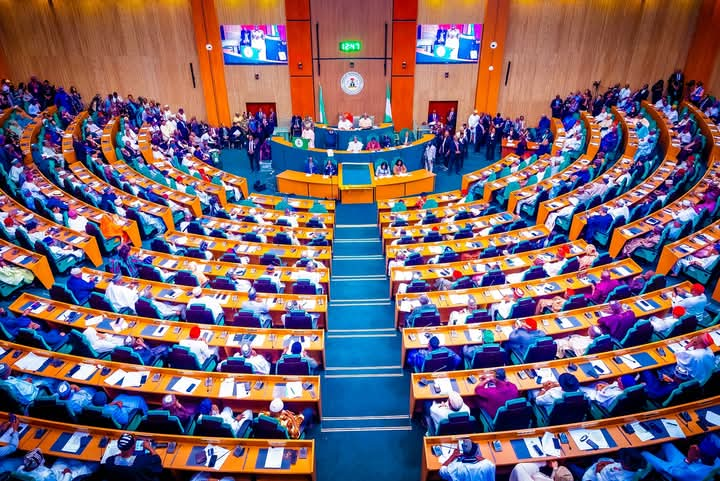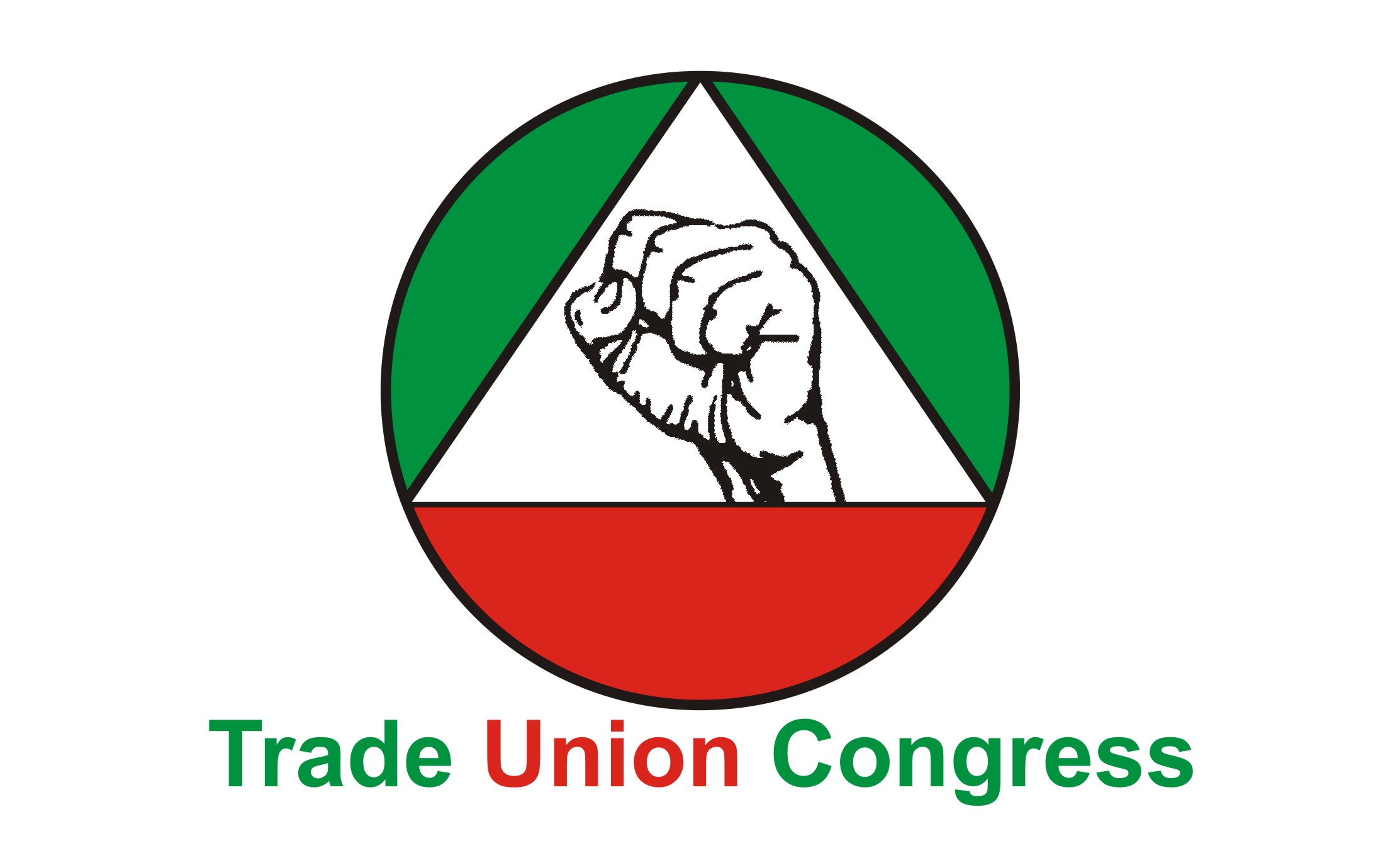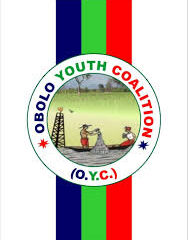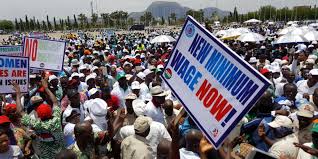Featured
FG Terminates Six Projects In N’ Delta …As NDDC, Partners Sign Contract To Develop Region

The Ministry of Niger Delta Affairs has concluded arrangements to terminate about six abandoned projects spread across the region with a view to enhancing the development of the region.
It would be recalled that the Minister, Pastor Uguru Usani, had made this known while receiving the report on the audit and review of the East-West road and other projects of its Ministry in Abuja.
Usani said that following the report from the Ministerial Technical Audit Committee on the contracts awarded from 2009 – 2015 in the Niger Delta, that some projects have been proposed for termination.
He listed the projects to include construction of OkpuhutaMbano Junction–Orie market–Lomara- Igwebulka (35km) – Abia State; Land reclamation and Erosion control project at OguduAbia Phase I, Abia State. Others are Idoro-Eastern Itam Water Supply Scheme Akwa Ibom; Construction of Mbak Atai-Ikot Ntu-MkpetiOkuiboku road project (13.86km) Akwa Ibom State; Ukparam Water Supply Scheme and Construction and Supervision of Omelema – Agada II Road, Rivers State.
The minister said the above listed projects were proposed for termination as a result of lack of capacity to complete the work as witnessed on site.
He said, “gross lack of capacity problem, lack of seriousness on the project, lack of technical capacity to prosecute project and gross lack of competence by the contractors.”
Usani said the committee juxtaposed its findings from project sites against facts retrieved from available documents domiciled in the departments that supervised the projects.
According to him, there were violation of contract award process; Right from the cycle of procurement planning to contract award, the committee noticed inconsistencies with the provisions of vital aspects of the Procurement Act.
“Prominent among other issues of violation were indiscriminate award of contract by initiating and benefiting departments without the leading and guiding role of the procurement department.
“Awards never took cognizance of availability of funds and annual appropriation provisions,” he said.
The minister said the structure and content of some contract agreements lack checks and balances, saying that they hardly protect the interest of the ministry in case of disputes.
He explained that the imminent picture of abandoned and uncompleted projects was as disturbing as the retinue of projects that extremely exceeded the dates of completion.
“This manifestly, emanated from inconsistency in government annual budgetary provision and lack of capacity to deliver especially where funds released do not correspond with performance.
“Most contracts were awarded with specific dates of completion but were not captured in subsequent appropriations.
According to the minister, this further exacerbated contractors’ poor performance and inability to achieve project objectives.
“Consequently, no capital project was completed within the stipulated time frame,” he said.
An Estate Manager, from Abia State, Mr Chijoke Micheal, told newsmen that the policy of terminating contracts not executed by contractors would speed up development in the Niger Delta region.
“Those contractors who think they can eat their cake and have it should better sit up because the present administration is determined to develop the region and curb corruption.
“We have been advocating for this change for a long time and I have been very vocal in calling on government to come down to our level and assist the region in development.
Micheal said: “It is important for contractors to realize that it can no longer be business as usual.
“It is important for everyone doing business with the ministry to realize that things must be done properly,” he said.
An architect from Cross River, Mrs Emen Odok, described the policy as a waste of money, saying that government want to politicize it, by putting such policy in place.
“What is wrong with the government calling the contractors to order? The excuse by the ministry doesn’t hold water at all.
“Rather than terminate a project that is 45per cent completed, why not terminate the contract and re-award the contract to another company that is most capable of completing it.
“The ministry has practically abandoned the Calabar skills acquisition centre, these beautiful structures are wasting away and being destroyed by erosion.
“What measures has the government put in place to address such wastage,” she said.
A retired civil servant, Mr Okon Udoh, said the ministry has so many abandoned projects spread across the region, saying that the Federal Government should address the issue, if truly government wants to develop the region.
Meanwhile, the Niger Delta Development Commission (NDDC) has signed separate Memorandum of Understanding (MoUs), with two key development partners to drive sustainable development in the Niger Delta region.
The two MoUs were signed, last Monday, at the NDDC headquarters in Port Harcourt, the Rivers State capital, between the commission and Market Development Project in Niger Delta (MADE), as well as Facility for Oil Sector Transparency and Reform in Nigeria (FOSTER).
Speaking at the ceremony, the NDDC Managing Director, Mr Nsima Ekere, stated that the MOUs reflected the new management’s plan and vision to drive sustainable development in the region.
He said that the choice of the partners was deliberate as it showed the determination and readiness of the commission for openness in its operations.
Ekere said: “It could not have been otherwise since transparency and accountability are the fundamental parameters of the Muhammadu Buhari administration.”
The NDDC managing director said that the NDDC Governing Board and Management at its last meeting ratified the collaboration with technical partners.
He restated the determination of the NDDC, “to restore the core mandate of the commission, restructure the balance sheet, and reaffirm the commitment to doing what is right and proper, at all times, for the benefit of the people of this great region.
“We hope to send a strong and clear message to the people of the Niger Delta, as well as all Nigerians and international community, that the new Governing Board and Management of the NDDC is committed to ensuring that we establish in the commission and the Niger Delta region, enduring instruments and institutions vital to fulfilling both our mandate and the expectations of the people,” Ekere added.
The NDDC boss said that the commission recognised the need to actively seek and engage key stakeholders and partners in collaborating with and thereby act as the integrator for all plans to develop the Niger Delta.
He added that, “Under the terms of the MoU, MADE will work with NDDC to boost efforts at stimulating sustainable, pro-poor growth in selected agricultural and other input markets. We will also work to improve the position of economically active but disadvantaged men and women in these markets, by making them more inclusive.
“This MoU will also enable grant funding for sustainable development initiatives, as well as stimulate growth in non-oil products through enhanced oil palm production, development of poultry farming, training in the production of finished leather goods, training in aquatic farming and media and ICT-supported agriculture extension service of the Presidential Amnesty Programme (PAP).”
He declared that the need to diversify the nation’s economy had never been more imperative, adding: “Economic diversification is vital to Niger Delta region’s long-term economic growth and we must align ourselves with initiatives that seek to advance this very vital cause.
“For this reason, agriculture and other factor markets must be given much-needed attention, in order to exploit opportunities that can create a vast number of jobs and boost employment profile of the Niger Delta region,” Ekere stressed.
Giving details of the collaboration with FOSTER, Ekere noted that it would improve reporting as the partner would support the production of the commission’s Quarterly Report, ensuring salient informant was captured and presented in a readable and understandable manner.
“The partnership would support improvements to prioritisation of projects and budgeting. Strengthen transparency, disciplined spending, and generally, engender overhaul of the commission’s internal systems, processes and procedures, with particular emphasis on budgeting, contract administration and program implementation.”
The leader of the FOSTER project, Mr Henry Adigun, said the delegation’s main objective was to provide technical support and strengthen NDDC’s management systems for the delivery of quality services for development.
He said that FOSTER would support the NDDC’s reporting system, help to boost budget implementation, as well as assist in project monitoring and evaluation.
In his presentation, the leader of the MADE delegation, Mr Tunde Oderinde, said the organisation would work with the UK-funded Department For International Development (DFID), which is a private sector initiative, to support the commission’s desire for maximum impact in the region.
He said that the major area of interaction was in agriculture where about 10,000 people were expected to be impacted, and added that MADE was building an enduring framework to support the projects to make them sustainable.
Oderinde said that the various projects would increase the incomes of at least 150,000 poor men and women in the Niger Delta.
“MADE adopts a market development approach to support growth in the region’s non-oil economy by stimulating sustainable, pro-poor growth in selected agricultural, input markets and improving the position of economically active poor and women in these markets by making them more inclusive,” he added.
Featured
Reps Propose Creation of 31 New States

The House of Representatives Committee on Constitution Review has proposed the creation of 31 new states in the country.
If the proposal scales through, the Nigerian state will be made up of 67 sub-national governments.
The proposal for new states was contained in a letter read during yesterday’s plenary session by the Deputy Speaker, Benjamin Kalu, who presided over the session in the absence of the Speaker, Mr Tajudeen Abbas.
The committee chaired by Kalu proposed six new states for North Central, four in the North East, five in the North West, five in the South East, four in the South-South and seven in the South West.
The letter read in part, “The committee proposes the creation of 31 new states. As amended, this section outlines specific requirements that must be fulfilled to initiate the process of state creation, which include the following:
New state and boundaries
“An act of the National Assembly for the purpose of creating a new state shall only be passed if it requires support by at least the third majority of members.
“The House of Representatives, the House of Assembly in respect of the area, and the Local Government Council in respect of the area are received by the National Assembly.
“Local government advocates for the creation of additional local government areas are only reminded that Section 8 of the Constitution of the Federal Republic of Nigeria, as amended, applies to this process.
“Specifically, in accordance with Section 8 (3) of the Constitution, the outcome of the votes of the State Houses of Assembly in the referendum must be forwarded to the National Assembly for fulfillment of state demands.
“Proposals shall be resubmitted in strict adherence to the stipulations. Submit three hard copies of the full proposal of the memoranda to the Secretariat of the Committee at Room H331, House of Representatives, White House, National Assembly Complex, and Abuja.
“Sub-copies must also be sent electronically to the Committee’s email address at info.hccr.gov.nj. For further information or contact, please contact the Committee Clerk at 08069-232381.
“The committee remains committed to supporting the implementing efforts that align with the Constitutional provisions and would only consider proposals that comply with the stipulated guidelines. This is coming from the Clerk of the Committee on Constitutional Review.”
The proposed new states are Okun, Okura and Confluence states from Kogi; Benue Ala and Apa states from Benue; FCT State; Amana State from Adamawa; Katagum from Bauchi State; Savannah State from Borno, and Muri State from Taraba.
Others are New Kaduna and Gujarat from Kaduna State; Tiga and Ari from Kano; Kainji from Kebbi State; Etiti and Orashi as the 6th state in the South East; Adada from Enugu, Orlu and Aba from the South East.
Also included are Ogoja from Cross River State; Warri from Delta; Ori and Obolo from Rivers; Torumbe from Ondo; Ibadan from Oyo; Lagoon from Lagos; Ijebu from Ogun State, as well as Oke Ogun/Ijesha from Oyo/Ogun/Osun States.
Featured
TUC Opposes FG’s Proposed Toll Gate On Federal Roads, Rejects Electricity Tariff Hike

The Trade Union Congress of Nigeria, (TUC), yesterday, opposed the plans by the Federal Government to toll selected federal roads in the country, as a means of revenue generation.
The TUC also kicked against any attempt to increase telecom tariff, saying it will compound the present economic hardship Nigerians are going through.
President of TUC, Comrade Festus Osifo, while presiding over the 1st Quarter 2025 National Administrative Council (NAC) of the Union in Abuja, yesterday, condemned the proposed reintroduction of toll gates on some federal highways without first of all ensuring that the roads are in good condition.
Osifo, who blamed the hardship in the country as a result of the government policies like the flotation of the naira, wondered why the Federal Government should initiate policies bothering on the citizens without due consultations with relevant stakeholders.
He said its is annoying that most of the roads which are unpaved, dilapidated, and riddled with potholes should be open for collecting tolls.
A communique issued at the end of the meeting partly read: “NAC deliberated on the proposed introduction of toll gates on selected federal roads and strongly condemned it in its entirely. While we acknowledge that tolling is a globally recognized method of generating revenue for road maintenance, it is unacceptable to impose tolls on roads that are unpaved, dilapidated, and riddled with potholes.
“The NAC views this as an insult to Nigerians, who are being asked to pay tolls on roads that are in total disrepair. Our highways are death traps unsafe, abandoned, and filled with potholes. Rather than fulfilling its responsibility to fix and maintain these roads, the government is resorting to shameless extortion.
“The Congress, therefore, demands that all roads earmarked for tolling must first be fixed, properly tarred, and repaired to international standards before any discussion on tolling can be entertained”.
Although the Federal Government recently debunked plans to increase electricity tariff by 65 percent, TUC said it was alarming that the government even considered the hike in the first instance.
Osifo lamented that the previous increment already inflicted severe hardship on citizens.
He said, “This proposed increase is not only ill-timed but also a deliberate act of economic oppression against Nigerians, who are already struggling under unbearable economic conditions.
“The improved service quality promised during the last tariff hike, particularly for consumers under the so-called “Band A” category, has not been realized. Most consumers, regardless of their tariff band, continue to live in perpetual darkness”.
TUC observed that the root cause of escalating prices and galloping inflation was the devaluation of the Naira.
Going down memory lane, Osifo said in February 2024, the TUC addressed a world press conference, where it clearly stated that the excessive devaluation of the naira was the primary cause of rising inflation and the continuous increase in the prices of goods and services.
He said Congress also warned that this trend would worsen inflation in 2024, impacting virtually every sector of the economy and severely affecting the social and economic well-being of Nigerian workers and the masses if the solutions it canvassed were not adopted.
The TUC President said 12 months later, the Congress position remained unchanged, alleging that the symptoms of the root cause have manifested clearly.
According to him: “These include the skyrocketing prices of essential goods, the escalating costs of social services, the proposed hike in telecom tariffs, the increase in electricity tariffs (with plans for further increments), the rising prices of petroleum products amongst others.
“The TUC remains focused on addressing the root cause of these economic challenges rather than merely reacting to the manifested symptoms. To this end, the TUC demands a better foreign exchange (FX) management regime from the Central Bank of Nigeria (CBN) as the naira is currently undervalued, as confirmed by both local and international experts.”
He warned that if the policies were not reviewed to favour the citizens, the TUC may be compelled to mobilise for mass protest.
“The NAC, on behalf of the Congress, strongly advises the government to refrain from introducing policies that would further exacerbate the current economic hardship faced by hardworking Nigerians.
“If the administration insists on implementing these policies, the TUC will have no choice but to mobilize the working class, civil society, and the oppressed masses for a nationwide action. This level of exploitation is unacceptable. A stitch in time saves nine,” he warned.
Featured
Africa Must Stop Depending On Foreign Blueprints -Tinubu

President Bola Tinubu has charged African leaders to stop clinging to their old habit of depending on foreign plans, saying the continent is in dire need of leaders who wield policy as a surgical blade instead of a slogan.
Tinubu lamented what he described as “the tragedy of our time” whereby African leaders do not only confine themselves to foreign blueprints but refused to emancipate themselves from client-state mentalities and governance by hashtag activism.
The President made these remarks in Abuja, yesterday, during the Dr. Kayode Fayemi commemorative symposium and launch of the Amandla Institute for Policy and Leadership Advancement, with the theme “Renewing the Pan-African Ideal for the Changing Times: The Policy and Leadership Challenges and Opportunities.”
The symposium was organised to commemorate the 60th birthday of the former Governor of Ekiti State, Dr Kayode Fayemi.
Represented at the event by the Vice-President, Senator Kashim Shettima, the President said, “Whatever our differences across the continent, one fact that can’t be eroded by our infighting is that we are in the age of machines, and we can’t fight our development dilemma with spears and arrows while the rest of the world is fighting the same battle with missiles and tanks. The world is not waiting for Africa to catch up.
“While we parse political rivalries, others parse datasets. While we litigate history, others engineer futures. The train of progress accelerates, yet too many of our leaders cling to old carriages. These are our client-state mentalities, our dependency on foreign blueprints, and our governance by hashtag activism. This is the tragedy of our time.
“The founding of Amandla Institute emerges as an antidote to this paralysis. We are here not only to generate more ideas but to create executors. We need leaders who wield policy as a scalpel, not a slogan. We need visionaries who see AI as a collaborator, not a competitor. We need a generation of Africans who recognise that Pan-Africanism, renewed for this age, must be rooted in actionable sovereignty.”
Tinubu pointed out that it would be wishful thinking to hope that the renaissance of Africa will happen as a gift, maintaining that it must be built.
He regretted that for too long, leaders in Africa have outsourced their thinking, relying on institutions and ideologies that treat countries on the continent “as consumers, not creators,” just as he insisted that the youth must be empowered to innovate in tech hubs across the continent.
“But the post-idea world dissolves excuses. With the democratisation of knowledge, we must empower our youth to innovate in tech hubs across the continent, from Cairo, down through Nairobi, to Lagos, building unicorns without the permission of any gatekeepers. What they lack is not ideas but ecosystems—systems where policy, funding, and political will converge to scale their genius,” he noted.
The Nigerian leader further urged African leaders to “evolve from custodians of power to architects of platforms,” adding that their “imagination of Africa must be one where every government ministry houses.
“AI strategists, where continental trade policies are drafted by homegrown think tanks like Amandla Institute, not foreign consultants, and where “Made in Africa” signifies not raw materials but algorithms, green tech, and cultural capital.”
-

 Politics4 days ago
Politics4 days agoProposed States Creation: Youth Leader Lauds Nass Over Obolo State Inclusion
-

 News4 days ago
News4 days agoTreasury Bills Attract N3.22trn From Investors
-

 Sports4 days ago
Sports4 days agoNPFL: Remo Narrowly Beat Pillars 2-1 To Maintain Lead
-

 News4 days ago
News4 days agoAfDB Dissatisfied With $210m Nigeria Agro-Industrial Zones Project
-

 Niger Delta4 days ago
Niger Delta4 days agoDiri Unhappy Over Poor State Of Public Schools
-

 Editorial4 days ago
Editorial4 days agoNew Federal Varsity In Ogoni
-

 News4 days ago
News4 days agoN70,000 Minimum Wage States’ Salaries Rise By 90% To N3.8trn
-

 Oil & Energy4 days ago
Oil & Energy4 days agoWAPCo Commences Four-Week Pipeline Maintenance

